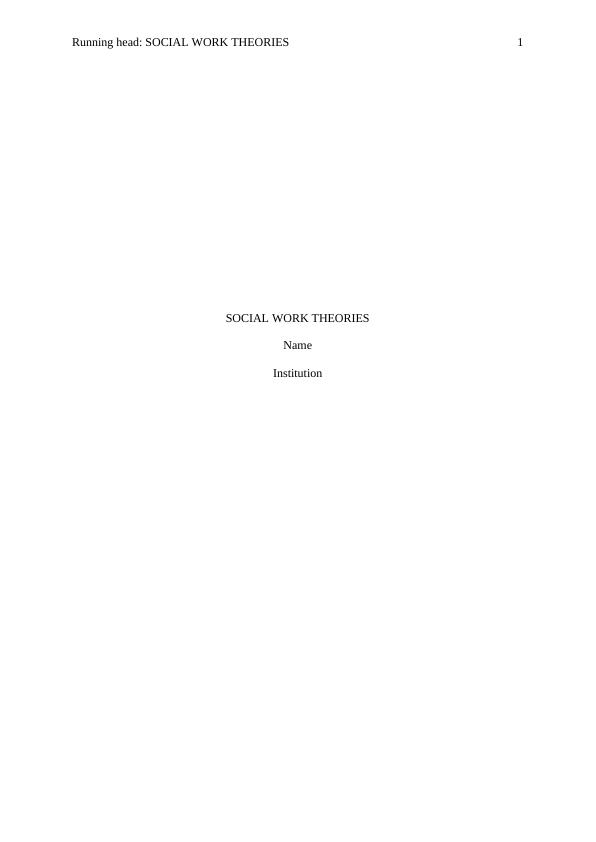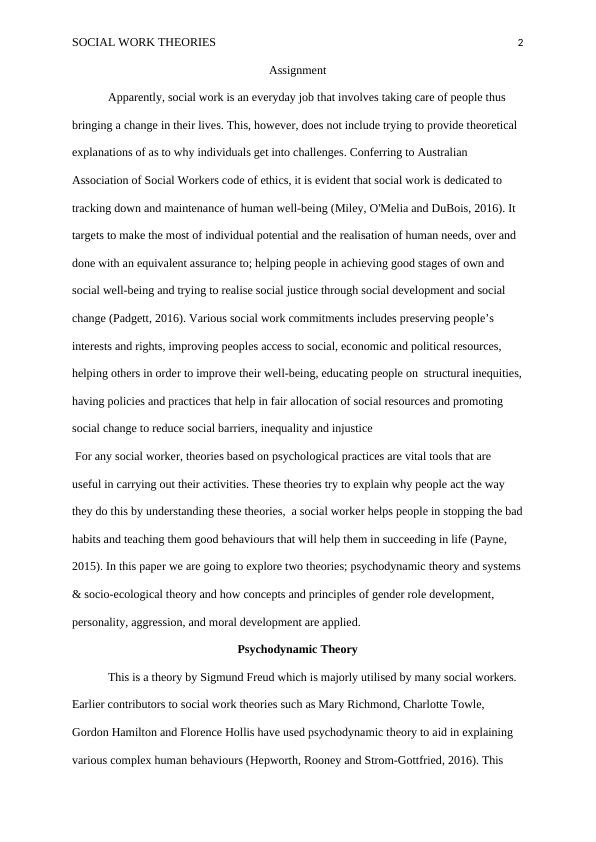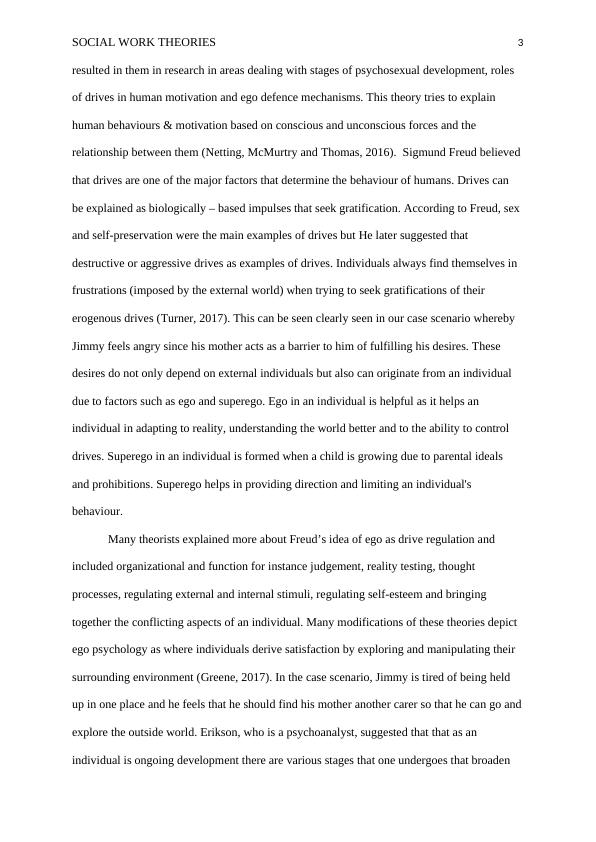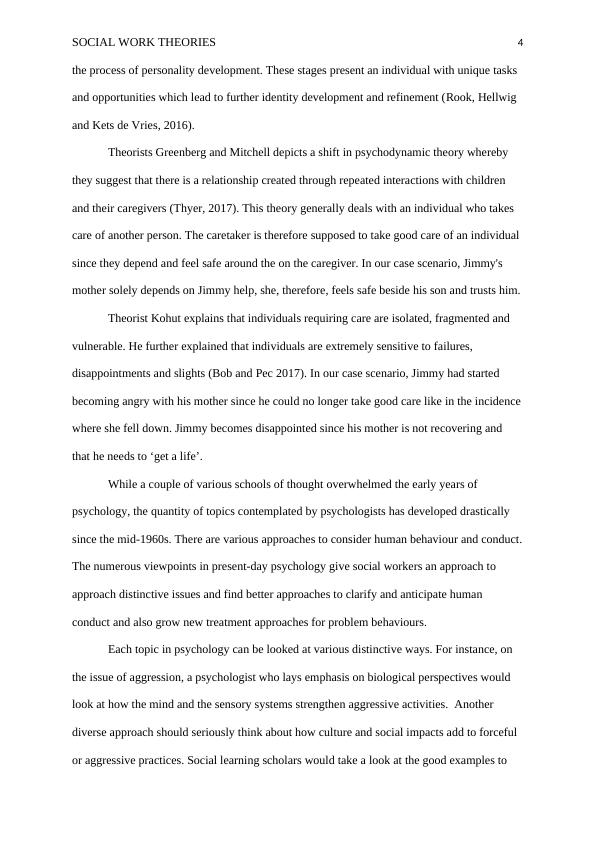Social Work Theories: Psychodynamic Theory and Systems & Socio-ecological Theory
Write a 2,500-word essay on a given scenario involving a young carer and analyze it using at least 2 social work theories.
11 Pages3418 Words373 Views
Added on 2023-06-11
About This Document
This article explores the application of psychodynamic theory and systems & socio-ecological theory in social work. It discusses the concepts of gender role development, personality, aggression, and moral development. The article also highlights the strengths and limitations of these theories.
Social Work Theories: Psychodynamic Theory and Systems & Socio-ecological Theory
Write a 2,500-word essay on a given scenario involving a young carer and analyze it using at least 2 social work theories.
Added on 2023-06-11
ShareRelated Documents
End of preview
Want to access all the pages? Upload your documents or become a member.
Concepts of the Psychodynamic Approach by Sigmund Freud
|7
|1329
|26
Social Work: Psychodynamic Theory 2022
|11
|1877
|19
Theories of Counselling
|10
|2576
|1
Theories of Counselling
|5
|1088
|338
Comparing and Contrasting Cognitive Behavioural Theory and Psychodynamic Theory in Counselling
|6
|1410
|365
Informal Theories of Human Development: A Discussion on Piaget and Freud
|3
|835
|133




